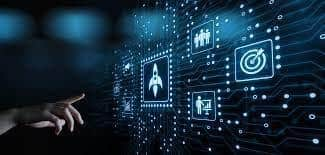AI in job search: How artificial intelligence is changing recruitment and job hunting
and live on Freeview channel 276
From optimizing job searches to enhancing candidate selection, AI is making a significant impact on how people find and secure employment.
In this blog, we'll explore the various ways in which AI is changing the landscape of job recruitment and job hunting.
1. Smart Job Matching
Advertisement
Hide AdAdvertisement
Hide Ad

AI-driven job search platforms use algorithms to match job seekers with relevant job openings. These algorithms consider not only qualifications and skills but also factors like location, salary expectations, and career goals. This ensures that candidates are presented with job opportunities that align with their preferences and qualifications.
2. Resume Enhancement
AI-powered resume builders and optimization tools help candidates create resumes that are more likely to catch the attention of recruiters. These tools offer suggestions for improving resume content, structure, and keywords, increasing the chances of getting noticed.
3. Chatbots for Candidate Assistance
Many job search websites and companies now use AI chatbots to engage with candidates, answer their questions, and help them through the application process. These chatbots provide a more personalized and immediate experience for job seekers.
4. Video Interviews and AI Analysis
Video interviews are increasingly common in the hiring process. AI can analyze these interviews to assess a candidate's body language, speech patterns, and responses, providing insights into their suitability for the role.
5. Predictive Analytics for Hiring
Advertisement
Hide AdAdvertisement
Hide AdRecruiters are using AI to analyze historical data and predict which candidates are most likely to succeed in a specific role. This data-driven approach helps organizations make informed decisions about candidate selection.
6. Skill Assessment Tests
AI-driven platforms are used to assess candidates' skills and abilities. These assessments are often more practical and tailored to the specific job requirements, providing a more accurate evaluation of a candidate's suitability.
7. Diversity and Inclusion Initiatives
AI can help address diversity and inclusion challenges in recruitment. By eliminating bias-related information from resumes and tracking diversity metrics, organizations can ensure a fair and equal opportunity for all candidates.
8. Automated Candidate Outreach
Recruiters can automate the process of sending out emails, interview invitations, and follow-up messages to candidates. This ensures consistent and timely communication.
9. Interview Scheduling Automation
Advertisement
Hide AdAdvertisement
Hide AdAI-powered tools can simplify the interview scheduling process, finding the best times for both candidates and interviewers, reducing scheduling conflicts, and streamlining the hiring process.
10. Career Path and Skill Development Recommendations
AI-driven systems can provide job seekers with personalized recommendations for skill development, training, and career growth. These recommendations help candidates stay competitive in their field.
AI is undoubtedly transforming the job search and recruitment landscape, making the process more efficient and personalized. However, it's essential to remember that AI is a tool to assist, not replace, human judgment and intuition in the hiring process. As AI continues to evolve, job seekers and recruiters should embrace these technological advancements to improve the quality of hires, streamline the hiring process, and create a more data-driven and fair recruitment ecosystem. The future of job recruitment and job hunting is marked by the symbiotic relationship between AI and human expertise.